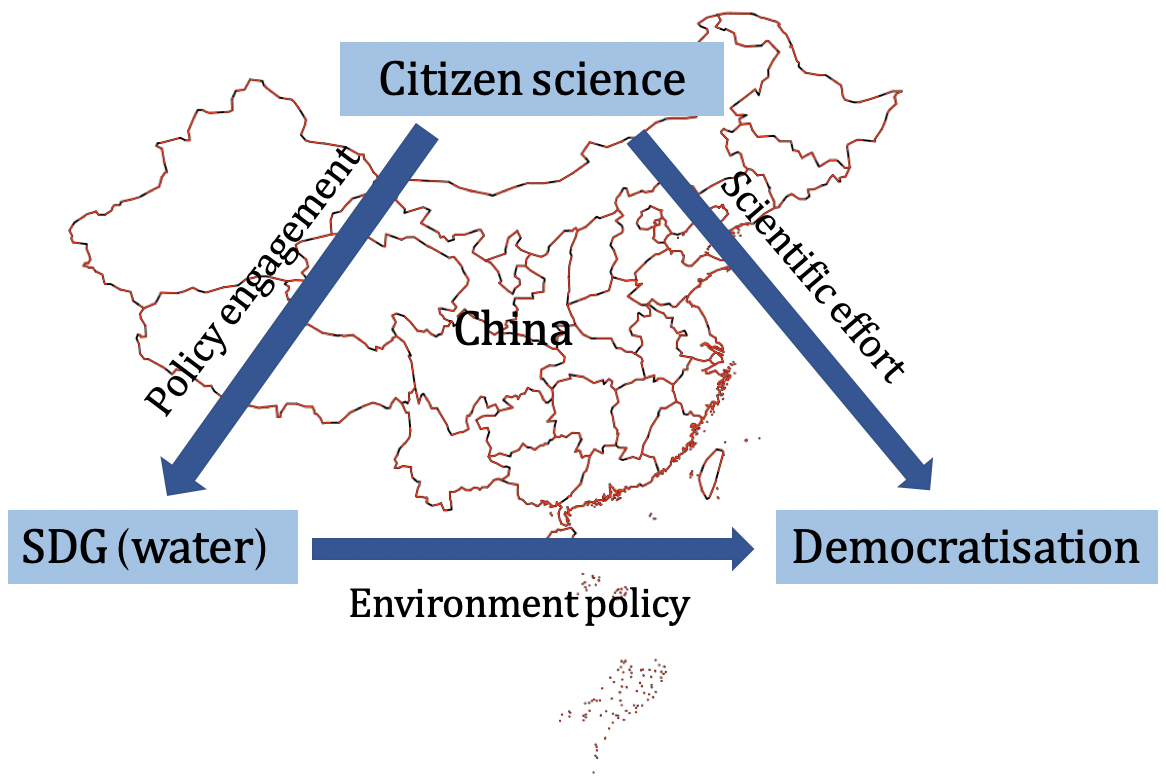This Webinar is part of an ongoing PhD project, run by Yaqian Wu, supervised by Prof. Muki Haklay & Associate Prof. Carla Washbourne.
The global challenges of sustainability are encapsulated in the UN Sustainable Development Goals (SDGs), to which China is committed. The 17 targets consist of 169 targets and 232 indicators. Entering the final sprint stage (its last decade), two major issues still appear in the monitoring process towards these 2030 Goals. They are vaguer conceptualisation and inadequate data resources existing among almost 50% of the indicators. In addition, the emergence and spread of COVID-19 has been a major setback in global ambitions to achieve Goals. More efforts are required to focus on developing and leveraging the wealth of real-time data available from multiple data resources, including non-traditional sources. And citizen science (CS), as scientific activities in which non-professionals voluntarily participate and work with experts, is exactly one of non-traditional ones. Evidences on CS application into SDGs have been founded in many capitalist countries (e.g. UK, US), while China, a socialist country, in which if CS can also add values on SDGs’ indicator measurement is a question worth discussing and answering.
In this webinar, we will start with three key targets of this research (see the conceptual framework diagram below, Fig.1) and discuss how they are connected. Then we will focus on five major sections of this project as follows:
- First, three aspects of research background around those three key targets above will be introduced. These are, Democratisation process, Citizen science for democratisation and SDG (water) implementation;
- Second, two significant research aims and questions (one big question along with three sub-questions) of this study will be identified;
- Third, the qualitative social science research methods – systematic review (SR), critical discourse analysis (CDA), drivers, pressure, state, impact, response (DPSIR), semi-structured interview (SSW), participatory observation (PO) and thematic analysis (TA), applied into this study will be briefly explained;
- Finally, the last two parts (current progress and next steps) will be introduced, including the linkage analysis among water-related Goals and a preliminary evaluation on current CS’s case studies in China.

Please see details below about the Webinar:
Date Time: 21st May 2021, 16:00 pm (BST);
Duration: 40 mins presentation and 20 mins Q&A;
Register in advance:
https://ucl.zoom.us/meeting/register/tJcqcOuvrTsjE9BWeT2Cm4-Vq-vz8n9t-OAN
